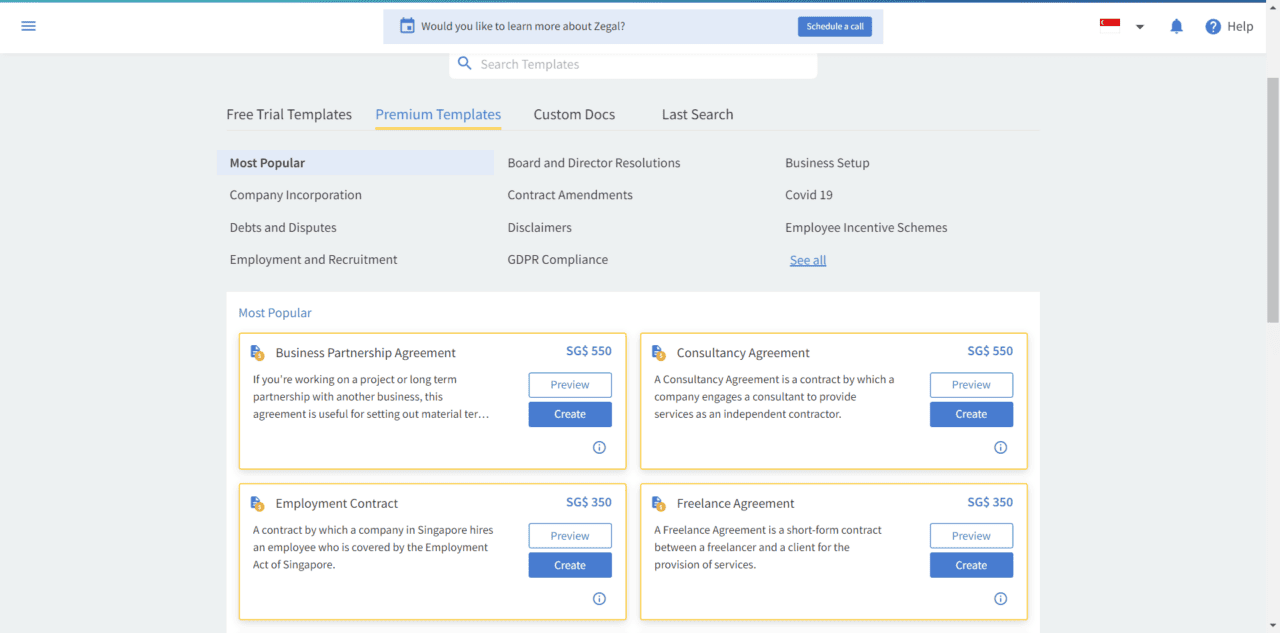Need any help? Contact us:

Table of Contents
Your sales are up. Everything is in line, your buyer party, your seller party. Now the only thing that you need is a legally binding document that clarifies all the terms of the transaction between both parties.
Sales contracts are a critical aspect of any business relationship between a seller and a buyer. They serve as the backbone of any business interaction.
However, from establishing a solid foundation to optimizing contract workflows, it can get overwhelming for a growing business to handle all the processes at once.
In this blog post, we will discuss tips for managing sales contracts. Whether you’re a business owner or a sales professional, these tips can help you streamline your contract management process.
In this blog post, we will discuss tips for managing sales contracts. Whether you’re a business owner or a sales professional, these tips can help you streamline your contract management process.
What is a Sales Contract?
A sales contract, also known as a purchase agreement or a sales agreement, is a legal document that outlines the terms and conditions of a sale between a buyer and a seller. It is a crucial agreement that specifies the rights and obligations of each party involved in the transaction.
It’s important to streamline legal processes for better decision-making. A typical sales contract includes details such as the identities of the buyer and seller, the description of the goods or services being sold, the price, and any other terms and conditions agreed upon by the parties.
The purpose of a sales contract is to protect both the buyer and the seller by establishing a clear understanding of the terms of the sale. Therefore, it is important to ensure that the sales contract reflects the intentions of both parties and is drafted in a clear and concise manner.
The Benefits of Effective Sales Contract Management
Today, Legal contracts are used for every purpose. Whether it’s for simply selling a product or doing SEO for criminal defense lawyers or even partnering with a reputable content marketing agency.
Sales contract management provides numerous benefits to organizations. Now it’s time to discuss the key benefits of the sales contract management system:
- Better risk management: Sales contracts involve legal obligations and financial implications, exposing an organization to risks. An effective contract management system allows companies to identify and mitigate risks associated with their contracts. You can review past records and common risks associated with each type of contract and take steps to reduce these risks.
- Improved revenue recognition: Sales contracts contain pricing, delivery, and payment terms information. Contract management allows organizations to track the progress of contracts and recognize revenue in a timely manner. This will improve cash flow and profitability.
- Enhanced customer relationships: Sales contracts are a critical component of the customer relationship. If contracts are fulfilled in a timely and accurate manner, it builds trust and loyalty with customers.
Ensure businesses receive payment: According to the CPA, over 50,000 small businesses go overdue each year due to late payments. A legal sales contract is a foolproof way of receiving payment on time. It’s a well-written and recorded document that outlines exactly what a seller will receive at an estimated time.
7 Tips for Managing Sales Contracts
The purpose of a sale contract is to legalize new relationships between the vendor and the salesperson. Managing sales contracts is a big deal.
That being said, managing these sales contracts effectively is a whole different ball game.
- Do proper research
It’s important to do your research before you develop a sales contract. Sales and legal have one common goal: get the contract signed on time. That means if you know what you’re dealing with beforehand that will save you and your vendor’s time.
You should verify the identity of the company, its legal name, and its reputation on social media sites with social media monitoring tools. It’s non-negotiable to check companies’ financial stability. Do they have any unpaid debts or bankruptcy?
Check alignments and remove all the roadblocks that could delay the sales contract.
- Keep it simple
For starters, make sure your contracts are simple, easy to read, and not filled with jargon. It’s important to consult with legal professionals to ensure that your sales contract meets all legal requirements and protects your interests.
Here are a few things you can include in your sales contract:
- Identification of parties
- Description of sales/ goods
- Payment terms
- Delivery and warranties
- Termination clause
- Governing laws
- In the end Signatures
By working on the layout, and making your sales contract clear, concise, and comprehensive, you can avoid any misunderstandings and legal disputes.
- Take advantage of approval workflows
The approval workflow is the process of creating a sales contract and making sure that the right people are involved in it. To manage your sales contract, automate the approval of workflows, and review and approve new contracts from your key stakeholders.
Chaotic workflows create friction between teams and your legal contractors. For example, it’s better to define the approval process, like who needs to approve it and at what time, and establish deadlines for each stage of approval. Don’t forget to provide stakeholders visibility into the status of the contract throughout the approval process.
This can keep everyone informed and ensure that the process is transparent.
- Keep your contract key details transparent
If you’re still negotiating on a few terms with your counterparties, don’t sneak around with words in your sales contract. So put key terms like commercials, and duration, on the top of the document.
Since transparent information will lead to better alignment on both sides and a quicker outcome (signed contract).

It’s important to provide explanations and context for any complex terms or concepts used in the contract. This can help the other party understand the terms and feel more satisfied with the agreement.
Also, be upfront about any limitations or restrictions in the contract, such as warranty exclusions or liability limits. It can bypass any surprises or misunderstandings later on.
- Outline the consequences of delays
If a contract suffers delays, it can lead to unwanted consequences like incurring additional costs, additional business hours, and other penalties.
To avoid these consequences, it’s best to outline it in the sales contract beforehand. Be clear and specific about the penalties or other consequences that may arise. In case of late payment, specify the interest or penalty that will be charged. This may include a late payment fee or interest on the outstanding balance.
Similarly, delays may impact any warranties or guarantees that are included in the contract. Specify how the delay will impact these provisions in the sales contract.
- Automate your milestone alerts
Automation is important if you want to know which contracts need to be renewed, regenerated, or terminated. Software like Zegal can help you identify the key milestones, set up alerts for each milestone in the contract, and customize alerts to suit your specific needs.
For example, you may want to send different alerts to different vendors based on the importance of the milestone.
As a first step, they installed CLM to streamline the master service agreement (MSA) and non-disclosure agreement processes.
- Sit back, document, and evaluate
Now is the time to sit back, relax and evaluate your sales contract to ensure that both parties understand the terms and expectations of the agreement.
Here are a few ways you can do the same:
- Track performance: You can monitor performance against the terms of the contract, such as delivery dates, and check if there are any issues.
- Communicate regularly: Maintain open communication channels with the other party to ensure that both parties are informed and involved in the contract execution process.
- Evaluate results: Evaluate the results of the contract against the expected outcomes. Don’t forget to document any wins or challenges that arose during the execution of the contract.
- Identify opportunities for improvement: Look for opportunities for improvement in the contract or the execution process. Consider how these improvements can be incorporated into future contracts or processes.
Conclusion
The future of contract management includes minimizing risk and ensuring the best business relationships.
With different contract management software like Zegal, your business can monitor contract obligations and deadlines. You can keep track of your contracts including products or services being sold, payment terms, delivery schedules, and other important details.
It includes more secure, transparent, and productive solutions. As voiced by William Bernbach, an American advertising creative director, “Nobody counts the number of ads you run; they just remember the impression you make.”
Future-minded organizations have already started creating a solid foundation to improve their contract processes. Make sure to follow the tips discussed in this blog and create, execute, and manage successful sales contracts.
Author’s Bio: Kamna is a data-driven marketing analyst focusing on delivering measurable results. She brings a keen understanding of SEO and email marketing to the table and is skilled at leveraging data to optimize campaigns for maximum ROI.





